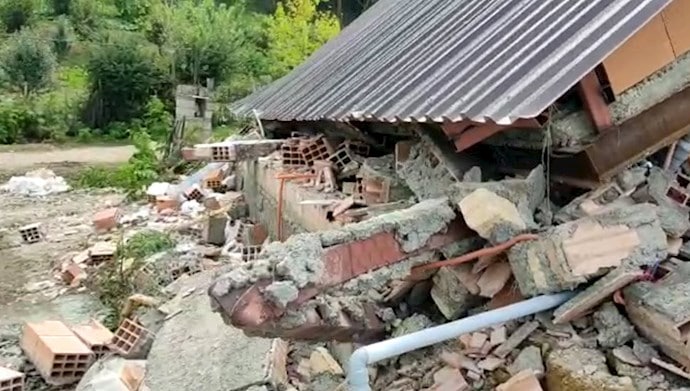The Islamic Republic targets Bahá’ís: From Instagram to Villages in Iran

Recent reports indicate the Iranian State continues its repressive policy and violence against the Bahá’í community, using almost any imaginable means in recent months: hate speech on social media such as Instagram and Clubhouse, confiscating lands from Bahá’í villages, closing shops, banning them from higher education and imprisoning them.
Such hostile actions have occurred since the triumph of the Islamic Revolution. However, in recent months, according to the Bahá’í International Community (BIC), “this machinery of hateful propaganda to demonize the Bahá’í community is reflected in a growing and coordinated network of hundreds of websites, Instagram accounts, Telegram channels, and Clubhouse rooms, with content such as “ Bahá’ís are unclean and enemies of your religion”, “associating with Bahá’í is banned”, and “purchasing any goods from a Bahá’í store is forbidden”.
“The Iranian government has a strategy of attacking the Bahá’ís by distorting the history of the Bahá’í faith and its teachings. It also aims to promote false information and use Bahá’ís as a scapegoat to deflect from their misdemeanors. The proliferation of digital platforms has accelerated the continuity of this process.”Bahá’í International Community (BIC)spokesperson Padideh Sabeti
Padideh Sabeti, the spokesperson for the BIC, tells Mvoices that “media in Iran is rarely independent and operates under the directive of the Iranian government, which deliberately and systematically disseminates false information and hatred about the Bahá’ís. The BIC has raised the alarm and called for the Iranian government to be held accountable for its campaign of hate speech against the Bahá’í community in Iran.”
She adds: “The Iranian government has a strategy of attacking the Bahá’ís by distorting the history of the Bahá’í faith and its teachings. It also aims to promote false information and use Bahá’ís as a scapegoat to deflect from their misdemeanors. The proliferation of digital platforms has accelerated the continuity of this process.”
Ethan Zuckerman, former director of the MIT Center for Civic Media and Professor at the University of Massachusetts, regarding the failure of social media platforms to tackle hate speech, says to Mvoices:” Harassment of religious minorities is quite common on most social media platforms. As we know from the Facebook Files revealed by Frances Haugen, Facebook spends the majority of its moderation resources on English-language content, both because it’s the content they find easiest to review and because it’s the content they are most likely to be asked about in the countries where they are significantly regulated. As a result, harassment of religious minorities in other languages can be invisible to platform companies.”
The BIC recently launched the #StopHatePropaganda campaign after observing an increase in the scale and sophistication of anti-Bahá’í propaganda in Iran. It has received enormous support from both Iranians and non-Iranians.
The actions of the Iranian State and its proxies against Bahá’í are not limited to the digital world but are multidimensional. One of these actions was the illegal confiscation of farmland in Roshankooh village in Mazandaran province. Several videos show the despair of Bahá’í villagers facing this repressive action. Some months ago, many other villagers lost their ancestral lands in Ivel village and were forced to leave after years of persecution. Previously, according to a stranger-than-fiction order, Ivel village-based Bahá’ís were urged to separate their cows from the ones belonging to Muslims.
In November, nine shops belonging to Bahá’ís were forcefully closed down and reports indicate that many Bahá’í students were banned from pursuing higher education.
Padideh Sabeti believes the repression will get worse. She adds: “It appears that the Iranian government has extended its activities to all organs of the country and have plans to introduce anti-Bahá’í propaganda in school and academic institutions—particularly to covert Bahá’í children to Islam.”
An elderly woman in the village of Roshankooh calling on authorities to stop illegally confiscating #Bahai lands owned for decades only because of their faith.Generation after generation these crimes are committed against #Bahais in #Iran #itstheirland @JavaidRehman @ahmedshaheed pic.twitter.com/Is7iVzTKP4
— Diane Alai (@DianeAlai) November 8, 2021
The United Nations, Amnesty International, and the European Union have stated that the members of the Bahá’í community in Iran have been subjected to unwarranted arrests, false imprisonment, beatings, torture, unjustified executions, confiscation and destruction of property, denial of employment, denial of government benefits, denial of civil rights and liberties, and denial of access to higher education.
